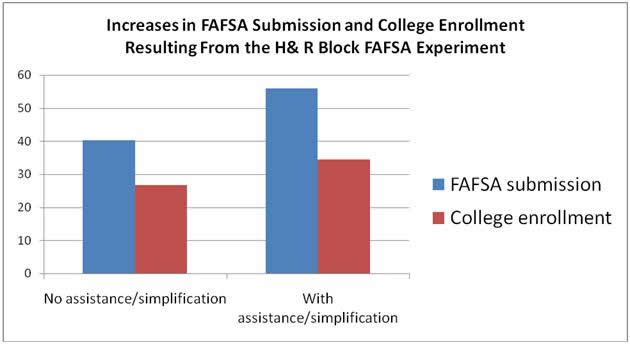Masters in Health Informatics Scholarships: How To Find Them
If you’re pursuing an advanced degree in health informatics, scholarships can help you accomplish your educational goals. Scholarships provide money for tuition, books, and all of the other expenses associated with higher education. Unlike student loans that you must begin repaying within six to twelve months after graduation, scholarships never have to be repaid. Scholarships are free money! Unlike some other education fields, it is relatively easy to find scholarships for your health informatics education. With a little research you could find yourself attending classes in no time and be well on your way to an advanced degree and a better paying job.
First Steps in Obtaining Scholarships
Here are some basic steps that you can use to help you consider, and generate all sources for potential scholarship leads. Be sure to consider all of your extra curricular activities, not just scholastic. You never know what types of organizations may offer scholarships. Casting as wide a net as possible will definitely increase your chances of finding available scholarship funds.
- Compile a list of schools you are considering attending.
- Make a list of all your achievements and possible career goals.
- Use Google to search the word “scholarship” along with your field of study.
Looking for Scholarships
Your attitude toward applying for scholarships should be to apply to as many as possible. There is usually no limit on the number to which you may be awarded since you will be applying to different organizations. Scholarship awards commonly range between $100 and $5,000 annually so receiving one or more can really help pay your expenses.
Health-related organizations often sponsor students with scholarships. Good places to look are:

- Professional associations
- Your employer
- Charitable foundations
- Religious organizations
- Nursing fraternal organizations
- Health career organizations
- Social organizations (Rotary, Elks, Lions, etc.)
- Colleges and universities
Some scholarships are available only to students within the field of biomedical informatics. For example, the National Institutes of Health often offers these for graduate students. Then there are other public and private organizations that offer scholarships to students interested in any area of health care. Nurses, radiologists, physicians, health administrators, and many other types of students may all be competing with you for a single scholarship.
Colleges and universities will also often offer scholarships to both applicants and their current students. Schools consider scholarships to be a good investment into their institution’s future. If they graduate successful alumni than it will mean more notoriety for the school. Additionally, successful alumni who have themselves been recipients of scholarships are more likely to donate money back into school programs. Schools want to give scholarships to the best and brightest to encourage and enable these students to do well scholastically and pursue unique educational goals.
Your college’s financial aid office will be able to provide more information regarding their school’s scholarship programs. Be certain to inquire about funding available for all students, as well as those specifically allocated toward medical and health informatics students.
While searching you may notice that there are typically fewer scholarships for master’s degree students than undergraduates. Please do not get discouraged and think this means you will not find funds for your graduate education. There just seem to be a lot more available to undergraduate students.
Types of Scholarships
Scholarships may be awarded for lots of different criteria. Some are based on academic major, extracurricular involvement, academic achievement, and financial need. Many of them seem to fall into one these categories.
- Need-Based Scholarships: These scholarships help financially disadvantaged students by taking into consideration their family’s annual income, the number of siblings the family currently has in school, and today’s cost of living.
- School-Based Individual Scholarships: Many schools offer specific scholarships based on academic major as well as merit-based donor awards. Contact each school’s financial aid office to learn more about campus-wide and departmental scholarships options.
Many scholarships are offered as annually renewable awards. That means that you will keep receiving the scholarship every year as long as you meet the specified requirements. Often schools and organizations will require recipients to maintain a high GPA, or complete a certain amount of volunteer work within in the community. Many scholarships that were renewable for undergraduates retain that status if you choose to pursue a master’s degree. Don’t forget to send in your paperwork every year!
Possible Application Requirements
The requirements for scholarships vary depending on the organization offering the money. Often an applicant will be required to submit a personal essay detailing their education goals and desired future health informatics career paths. Here are some tips for ensuring that you create an effective scholarship essay:
- Make sure you answer the question clearly.
- Your essay should have a thesis, supporting points and a closing.
- Ask someone you know well to proofread your work for grammar and content.
- Pay attention to the specified length.
- Be certain to submit the essay prior to the deadline.
As part of applying to scholarships you will want to have copies of several documents readily available for submission. Some common requests are:
- Social Security card
- Driver’s license or state ID
- Record of previous year’s of money earned (W-2 Form, etc.)
- Most recent income tax return (and spouse, if married)
- Parents’ federal income tax return (if dependent student)
- Untaxed income records (for example, Social Security, Temporary Assistance for Needy Families, welfare, veterans benefit records)
- Current bank statements
- Investment records
- Your alien registration or permanent resident card (if not born in the US)
Scholarship money is one way to fund your master’s in health informatics without incurring out-of-pocket expenses. Grants are similar to scholarships in that they are an additional source of free money. The difference is that grants are awarded based on the financial needs of the applicant so not everyone qualifies. If you feel you are a potential grant candidate, contact your school’s financial aid office for more information about the program.
Why Scholarships Are Important
School is expensive, and tuition continues to rise. State support for students has decreased substantially in the past few years. As a result, FAFSA submissions have dramatically increased. In order to avoid high-interest rate loans, looking for additional aid is often needed to help pay for tuition and other school-related expenses. In the past two years, there was a 40 percent increase in FAFSA submission rates, and a 29 percent increase in college attendance rates the next year (see chart below):
A scholarship will help you achieve your goals and continue your education. While the search process is often lengthy, the reward is worth your effort. A college education costs more than it use to. With patience — and a little guidance — you might find you qualify for more than one scholarship!
Beware of Fraud!
Unfortunately there are people out there looking to steal your personal information. Be certain to protect yourself by only visiting verified websites. Avoid scholarships scams by visiting The Federal Trade Commission or FinAid to make sure the websites you visit are legitimate. It’s important to know the warning signs of a potential scam to avoid wasting both your time and money.
Additional information about scholarships can be found by visiting Student Aid on the Web. Here you can read about other government funding programs as well as search and apply for several financial awards. Once you’ve narrowed your list, you’ll want to contact each school’s financial aid office to learn more about their funding options. Our list of accredited colleges and universities will get you started in the right direction.
Featured Master's in Healthcare Informatics Programs
Health informatics is the study of how technology, particularly artificial intelligence, computer science, and informational science relates to the medical field. This field of study is typically applied to clinical care, nursing, public health, and biomedical research. The universities and colleges listed below offer online master's degree programs in this subject
Looking for a health informatics degree?
Fill out this short form below, and we'll help match you to a college program that suits your interests, whether online- or campus-based.


 Catch up on nurse informaticist Anna Fernando's latest blog posts!
Catch up on nurse informaticist Anna Fernando's latest blog posts! 


